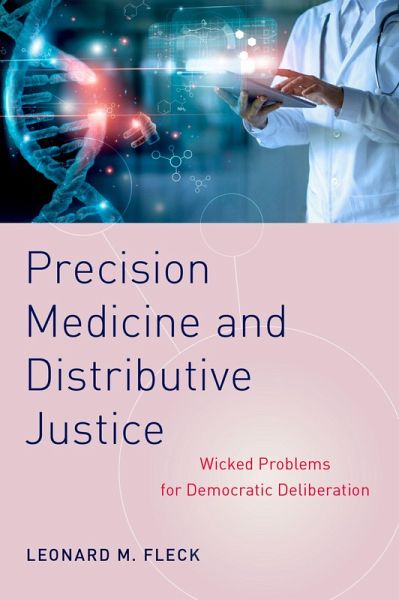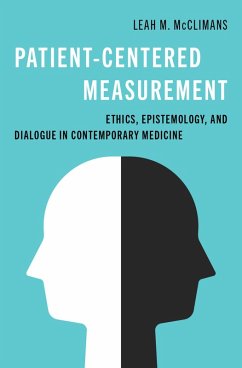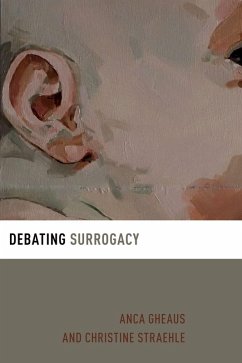
Precision Medicine and Distributive Justice (eBook, ePUB)
Wicked Problems for Democratic Deliberation
Versandkostenfrei!
Sofort per Download lieferbar
33,95 €
inkl. MwSt.
Weitere Ausgaben:

PAYBACK Punkte
17 °P sammeln!
Metastatic cancer and costly precision medicines generate extremely complex problems of health care justice. Targeted cancer therapies yield only very marginal gains in life expectancy for most patients at very great cost, thereby threatening the just allocation of limited health care resources. Philosophers have high hopes for the utility of their theories of justice in addressing the challenges of resource allocation; however, none of these theories can address adequately the "wicked" ethical problems that have resulted from these targeted therapies. What we need instead, bioethicist Leonard...
Metastatic cancer and costly precision medicines generate extremely complex problems of health care justice. Targeted cancer therapies yield only very marginal gains in life expectancy for most patients at very great cost, thereby threatening the just allocation of limited health care resources. Philosophers have high hopes for the utility of their theories of justice in addressing the challenges of resource allocation; however, none of these theories can address adequately the "wicked" ethical problems that have resulted from these targeted therapies. What we need instead, bioethicist Leonard M. Fleck argues, is a political conception of health care justice, following Rawls, and a fair and inclusive process of rational democratic deliberation governed by public reason. His account makes the basic assumption that we have only limited health care resources to meet unlimited health care needs generated by emerging medical technologies. The primary ethical and political virtue of rational democratic deliberation is that it allows citizens to fashion autonomously shared understandings of how to fairly address the complex problems of health care justice generated by precision medicine. While ideally just outcomes are a moral and political impossibility, "wicked" problems can metastasize if rationing decisions are made invisibly--in ways effectively hidden from those affected by those decisions. As Fleck demonstrates, a fair and inclusive process of democratic deliberation could make these "wicked" problems visible, and subject, to public reason.
Dieser Download kann aus rechtlichen Gründen nur mit Rechnungsadresse in A, B, BG, CY, CZ, D, DK, EW, E, FIN, F, GR, HR, H, IRL, I, LT, L, LR, M, NL, PL, P, R, S, SLO, SK ausgeliefert werden.













